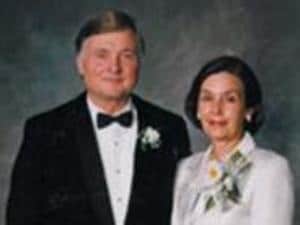Fado is the ultimate heartbreak song.
The general theme is: He kissed me. I loved him. He left me, the bastard.
Fado is the ultimate heartbreak song.
The general theme is: He kissed me. I loved him. He left me, the bastard.
Was Dudley Moore.
Taking the theme of ‘Hitler’s only got one…’
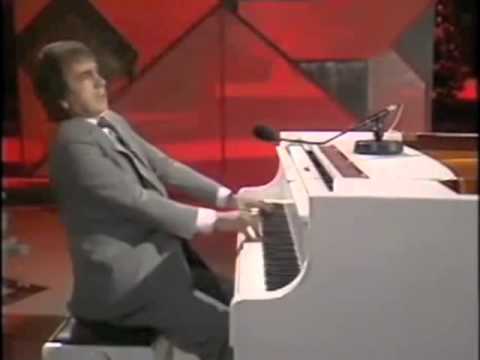
No-one can say that Katharina Wagner did not put up a good fight to save Wagner for the Wagners. She let herslef be groomed by her father Wolfgang to take over when he died and, while she accepted joint rule with half-sister Eva, it was only ever going to be a temporary arrangement. Wolfgang had left no doubt how the succession was to proceed.
But no-one said it would be easy for Katharina, and the past four months have probably been the worst of her life.
First came the sudden death of her confidant, the inscrutable Bayreuth press chief Peter Emmerich. Then this summer’s festival was wiped out by Coronavirus.
And finally, this week, Katharina herself was diagnosed with an unspecified ‘longterm illness’ that has removed her from the director’s job, apparently for good. Everything the Wagners stood for, everything they fought for, has gone.
So what happens now?
In a comment to Berlin’s Bild newspaper I summarised: ‘This is the end of the line. The last Wagner has left Bayreuth and the shrine is liberated. The past can be cleansed by letting independent scholars into the archives and the future can be reconstructed around principles that have nothing to do with bloodlines – only art.’
So what now?
The board will probably reach out to some of the more competent opera house managers in Germany to see if they would be interested in taking over on an interim basis. Bayreuth is not a job an opera-mad manager would readily pass by. There might also be a tendency to approach a successful recent director, someone like Barry Kosky or Tobias Kratzer, both of whom enjoyed public acclaim at Bayreuth.
There is also the possibility of an attempted putsch by other branches of the Wagner family, who have never taken their expulsion lightly. And there might also be a recall from the board on a consultancy basis for the experienced Eva.
It really is all up for grabs.
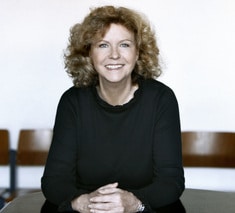
A poem by the Parisian surrealist Jacques Prévert, set to music in 1945 by a Hungarian refugee Joseph Kosma and immortalised by the Italian Yves Montand.
Oh je voudrais tant que tu te souviennes
Des jours heureux où nous étions amis
En ce temps là, la vie était plus belle
Et le soleil plus brûlant qu’aujourd’hui
Les feuilles mortes se ramassent à la pelle
Tu vois je n’ai pas oublié
Les feuilles mortes se ramassent à la pelle
Les souvenirs et les regrets aussi
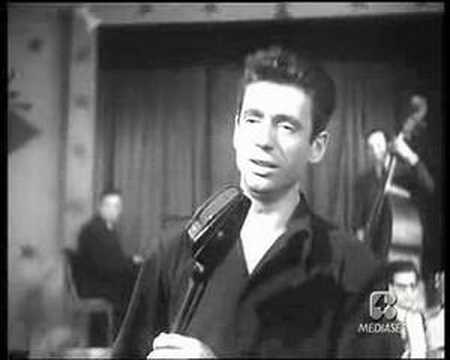
The San Francisco Symphony today cancelled all concerts until September, ending Michael Tilson Thomas’s 25 years as music director without allowing him a chance to say farewell.
It has also cut pay for musicians, chorus, and stagehands by 25% on average. MTT will not be paid for the cancelled concerts.
‘We would have been performing essential works in which we have developed our special sound, style and collaboration,’ he said. ‘It would have been such a joy to share our innovative tradition with our audiences and to savor once again how much we have grown together during these last 25 years. I’m looking forward to our making music together in the future in my new role as Music Director Laureate.’
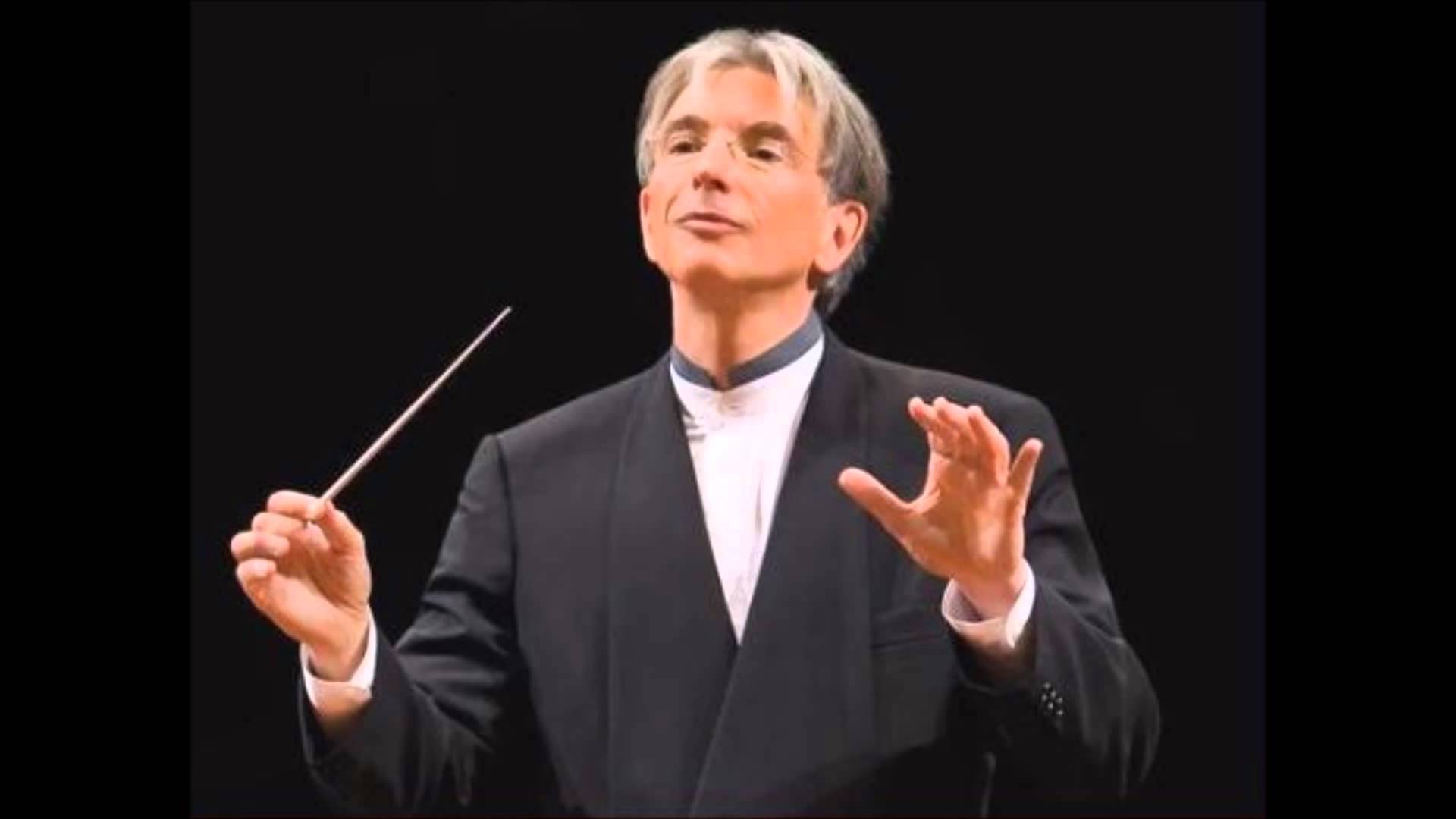
Message to Slipped Disc from Nadja Salerno-Sonnenberg:
Imagine you are a very young violinist…that maybe a handful of people have heard of…and Lynn Harrell agrees to play with you. Imagine the generosity of that.
My first rehearsal with him was 8:00 am. Brahms B Major Piano Trio, with Brooks Smith. I was up before the sun and honestly cannot remember another time in my entire life where I felt more excited. I don’t recall anything that happened before hearing him play that opening theme…knowing I had only seconds left before I would join him. And only seconds after that, my life would be changed forever.
Maybe I still would have had a career…possibly…probably. But I certainly would not have played the way I did for the rest of my life if not for Lynn Harrell. When you are young and just getting started, all you have are your instincts…and many, many people telling you what to do. In my case, many people telling me what not to do. I could only play what I felt… it’s all I knew… and Lynn gave me the gift of trusting that. He was my mentor and my protector, shooting down anyone who questioned what I was doing.
“Let her play”….I heard that a lot.
You cannot know when you are young, the value of that. For decades we played together…pretty much everything a cello and violin could play. Being 3 feet away from him, watching and learning and feeling everything he was doing…his sound…that sound. You could feel it in your teeth.
No I’m quite certain I would not have become the player I became without him. For better or worse (depending who you speak to) he molded me by giving me that great gift of trusting your instincts. How lucky I was to know him, to know his family, to learn from him, and to love him.
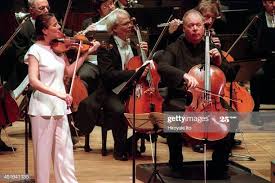
Message to Slipped Disc from Nigel Kennedy:
There was a time in my life when I was surrounded by mental midgets from record companies and such like who wanted me to grow narrowly upwards like a short-lived pine, as opposed to growing broad branches like a long-lived oak. In order to preserve my musical integrity it had been necessary to self-exile from the yoke of these ignorant people.
It was during my extended sabbatical from classical music that, out of the blue, I received a letter expressing regret at my withdrawal from the classical world and generous admiration for the way I play. The letter was from Lynn Harrell, the greatest cellist of his generation and maybe for the last hundred years. This generous outreach was typical of Lynn and lead to us recording and touring duo repertoire for cello & violin around the world.
During our work together he displayed the incredible joy of music and of life. Always growing as an artist what was even more important was the generosity, humility, honesty and openness epitomised by Lynn the man.
Thank you Lynn, for wonderful music & memories.
UPDATE: Tribute from cellist Mats Lidstrom, in response to a mean NY Times obituary:
I have read some of the obituaries. The usual, referring to Lynn as a ‘gentle giant’ or mentioning his hip and knee surgery. I have wondered ever since I met Lynn nearly forty years ago, why that seems to happen when Lynn’s name comes up. Here is a supreme force, an artist and master offering us alternative avenues, a cellist with no technical short-comings. Would we refer to hips and knees when we talk about the greatness of other artists?
Lynn personified kindness. There was no agenda, political or otherwise, brewing within. One was always met with warmth, generosity and a genuine interest. This, in combination with his tremendous energy, search for beauty and technical mastery, made his music-making a journey of unlimited choices. To strive for alternatives and perfect those alternatives, to enter new territory and reach beyond what has already been tried and presented by others many times over, made him as an open book and therefore vulnerable. For the frontier, courage is needed. And Lynn had courage. Watching him with the cello meant a thousand moments of learning. One comment from him about something he may have observed about your own playing, could explain and make sense of the world of bow speed, or the ultimate importance of a balanced left hand. Therefore his name keeps popping up in my teaching. He functions as a reference to perfection. To my mind, hi cello-playing is unique and has no equal. There are many musicians representing wonderfully intelligent and gorgeous music-making, but what I point to here, is his capability as a cellist. He worked out how to manoeuvre our big instrument with minimum effort, his used his left hand across the register with perfect economy so that it looked like he played with his fist. This type of perfected balance, like a swimmer who needs to gain hundreths of a second to increase the end result, enabled a wide and gorgeous range of vibrato and glissandos. If the great mystery, after all, is created by the right hand, Lynn possessed not only the vision of sound but also the technical ability to execute it. And so he arrived with a new sound which had never before been linked with typical string playing, a dimension of depth and transparency. To make one’s vision materialise requires, for most of us, a lifetime of work – and even if we can tell early on that this is unachievable, our duty is to continue the work. I remember a masterclass when a student had played his piece and was waiting for Lynn’s comment. In his usual friendly tone, Lynn said thank you and, ‘there was a place at the most difficult spot where you didn’t look too troubled to have messed it up. You know… that place may only be two seconds worth of music, but even if it means sixty more hours of
practise, you’ve got to do it.’
We all have people in our lives who constitute corner stones. Lynn is one for me. I first met him at the Piatigorsky Seminar in Los Angeles when I was 22 years old and I was proud that we shared the same teacher at the Juilliard School, Leonard Rose. I remember playing tennis with Lynn at the court of Mrs.Piatigorsky in Santa Monica. On the day it was time to return home, Lynn had to leave early and there was no time for goodbyes. So instead of waking me up, he had emptied an entire box of wrapped chocolate outside my door. A decade later, as the Principal of the Royal Academy of Music in London, he offered me a teaching position there, and a couple of years later he attended my wedding in Aspen, Co. Lynn and I were in the middle of recording my trio for violin and two cellos, Carnival of Venice, for the EMI label with our friend Nadja Salerno-Sonnenberg.
The CD was made possible because of her. One of the recording sessions ended at 2pm, which gave me just enough time to have the worst haircut I have ever had and get changed before walking over to Aspen Chapel and get married at 4pm. In the morning Lynn had sent us a Magnum bottle of Champagne (with a small envelope containing $100 in cash!) to give us ‘a nice start of the day’.
I shall miss him, but he shall remain part of it all, too.
Almost the last of the great summer festivals, Lucerne has fallen victim to a new set of rules published today by the Swiss authorities.
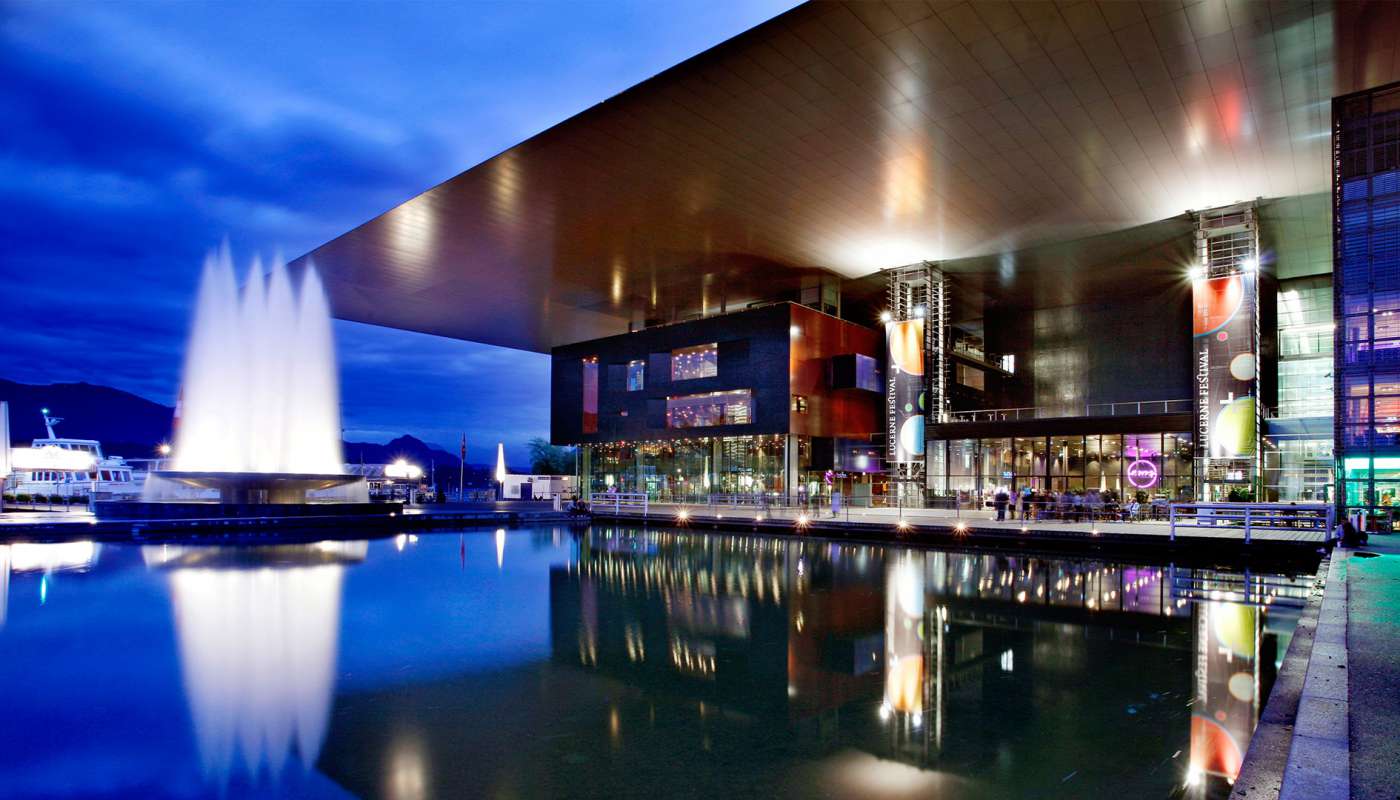
It’s looking bad for Salzburg.
Press release follows.
Lucerne, 29 April 2020. With deepest regret, Lucerne Festival announces that the Summer Festival
must be cancelled owing to the coronavirus pandemic. It was to have taken place between 14 August
and 13 September. Owing to the provisions that the Swiss Federal Council announced today, it is not
possible to present the concerts in compliance with the mandatory health regulations, nor is it
possible, for organizational reasons, to postpone these events. This means that, for the second time
since 1940 in its long, storied history, the Summer Festival will be cancelled.
“This decision is extremely painful,” remarks Executive and Artistic Director Michael Haefliger regar-
ding the cancellation. “We had hoped until the very end that we would be able to hold the Festival
despite the ongoing coronavirus pandemic. We struggled, thought through alternative scenarios, and
examined every conceivable possibility. But after the most recent decision by the Swiss Federal
Council, we unfortunately find ourselves compelled to cancel the originally planned Festival exploring
the theme of “Joy.” We know what cancellation means for the many artists who have been looking
forward to their performances in Lucerne for months and who are now unable to perform, and we
also know what it means for Lucerne Festival’s audience. However, we will not allow the coronavirus
to take from us our joy in music. Every crisis is also an opportunity and opens up new possibilities. In
the coming weeks and months, we will regularly update you about what we are planning and will also
have some remarkable digital offerings.”
Tickets that have already been purchased will be refunded; alternatively, their value can be donated
to Lucerne Festival. For further information, please visit the website at www.lucernefestival.ch.
There’s a growing outcry among general practitioners in Germany about the Government’s failure to provide protective equipment.
They’ve launched a naked protest here.
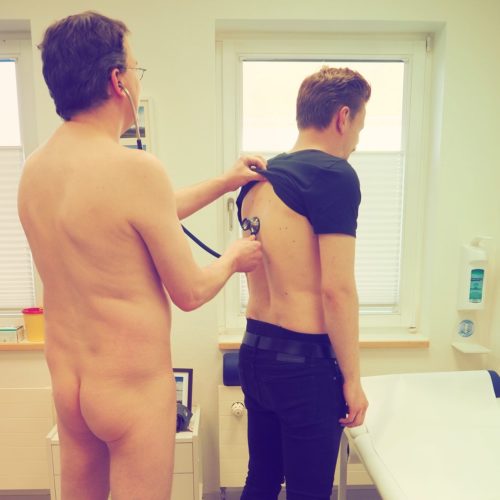
Alarming, albeit lacking the designer style of our protesting French dentists.

It seems that more dentists than doctors became composers. The only composer-physicians we can find are Hildegard of Bingen, Thomas Campion and Albert Schweizer. Who are we missing?
If you have to appear on screen – whether for a social exchange, lecture or a TV appearance – do pay attention to the camera angle.
Unlike this chap, who forgot he was wearing no pants.
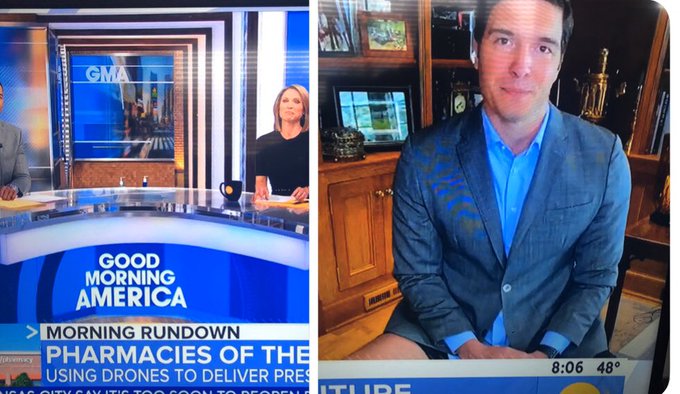
The Curtis teacher Ida Kavafian reports that Dr. Lorna Breen, who was driven to suicide by the stress of caring for Covid patients in a New York hospital, was an enthusiastic amateur cellist who studied with Magdalena Garbalinska.
Psychiatrist Gia Merlo of NY University adds: Dr. Lorna M. Breen, the medical director of the emergency department at NewYork-Presbyterian Allen Hospital, died Sunday. She was a delightful, empathic physician and cellist. She was an effervescent, dedicated member of the orchestra for many years and the news comes as a devastating, heart-wrenching blow to our New York Late Starters Orchestra members.
Rest her soul.
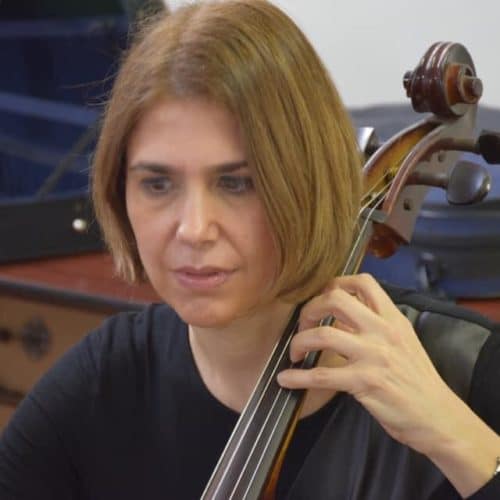
The biannual conference of GMDs and chief conductors will take place digitally on May1. Ahead of their conference, the big sticks have sent an open letter to the political authorities seeking clarity about the resumption of musical life. The conference consists of 60 members, both active and retired.
The letter is a bit long so we’ve highlighted the relevant bits.
DER GMD und Chefdirigentenkonferenz e.V. · c/o Eckehard Stier · Tolstoistraße 6 · 01326 Dresden
VORSTAND Prof. Marcus Bosch (V.) Will Humburg Mihkel Kütson Open Letter of the Generalmusikdirektoren- und Chefdirigentenkonferenz e.V.
Marc Niemann Eckehard Stier
On the Current Situation of Opera Houses and Orchestras during the Corona Crisis
EHRENMITGLIEDER Prof. Dr. Peter Gülke, Prof. Dr. Hartmut Haenchen (pictured)
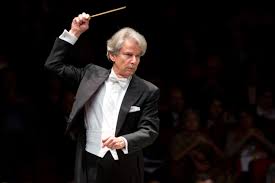
April 28, 2020
Dear Madame Minister of State for Cultural and Media Affairs Professor Monika Grütters, dear Minister Presidents, dear Members of the Board of the Cultural Commission of the Bundestag
The GMD- und Chefdirigentenkonferenz e.V. requests a set of guidelines for the gradual resumption of opera and concert schedules that is in line with current legal regulations and the recommendations of the Robert Koch-Institut.
Construction superstores, furniture shops and the football Bundesliga are not alone in deserving a clear future perspective accompanied by guidelines for a timely reopening.
We are well aware of the risks associated with a premature resumption of business as usual. We believe, however, that further measures forcing opera and concert venues to close without the intro- duction of a corresponding timeline that outlines when performances and rehearsals can be expec- ted to resume, will inflict irreparable damage to both German musical life and the globally unparalleled municipal theatre scene.
The unique network comprising both publicly funded musical institutions and freelance musicians is not only an essential part of the creative industry, it is an indispensable and essential part of German cultural heritage and thus of high systemic importance. For these reasons, we endorse and express our wholehearted support for the requests by freelancers to receive appropriate support in these difficult times. The current situation has also cast doubt regarding the success of the Federal Republic of Germany’s ongoing efforts to have its orchestral and theatrical landscapes adopted into UNESCO’s list of immaterial heritages.
Due to the global impairment of everyday life and the damage that the arts and cultural sectors have had to endure, it is paramount that we respond to the many calls to provide a counterweight to the hardship through inventive, creative, and energetic cultural offerings such as concerts and operas. It goes without saying that this must occur in a responsible manner, fully taking into account the necessity to protect the health of our musicians, our singers and our audiences. To this end, we are currently in discussions with the task force assigned to questions of health and safety of the Deutsche Orchestervereinigung (DOV).
We realize that it will likely be a long time before we are able to once again enjoy operas and con- certs as before. However, surely there are a number of possible alternatives to live performances that adhere to the novel COVID-19 regulations, such as open air performances of concertante operas or special productions that abide by the distancing regulations. Other possibilities would be pe formances of works written for small ensembles, such as from the baroque and classic eras, that constitute a significant part of orchestral repertoire. Conductors and string instrument players could wear masks, small choirs and wind instrumentalists could be placed at necessary distances and even additionally protected by plexiglass panes. With regard to audiences, existing measures could be adopted and altered to suit concert settings.
However, all of these suggestions and possible solutions will remain fruitless if politicians and public health departments do not come forward soon with a clear set of conditions and guidelines to this end.
The General Music Directors, Chief Conductors and their orchestras, in close exchange with the Bühnenverein and the DOV, are ready and willing to develop new, creative and exciting formats for our audiences, who miss us dearly. Orchestras have already begun creating numerous initiatives to remain visible, help those in need and express how vital it is for musicians to be able to perform. Especially during times such as these, in our evermore digitally connected world, we are deeply convinced that our analogue forms of art are increasingly important and constitute an integral part of what makes us human.
With kind regards, The Board of the GMD- und Chefdirigentenkonferenz e.V.
David S. Boe, Professor of Organ at Oberlin Conservatory and Dean of its Conservatory, died yesterday of Covid-19. He was 83.
An organist and scholar, Boe was a leader in the drive to perform organ music with historically informed performance practices, on organs that were built to historic specifications. John Brombaugh built an organ for First Lutheran Church in Lorain, Ohio, where David Boe was organist. Both church and organ perished in a fire in 2014.
Christa Rakich, visiting Professor of Organ, writes: David was a kind, gentle, and insightful presence not only at Oberlin, but also in the wider organ world. Admiration for his musicianship and his diplomacy were widespread, and the world seems a poorer place for his absence. David had a hand in the acquisition of all of Oberlin’s wonderful organs. Fine instruments and fine players are an equal part of his legacy. In his last days, despite isolation, he was able to hear his son Stephen play Bach on the violin, and to hear the Fairchild organs played by David Kazimir.
